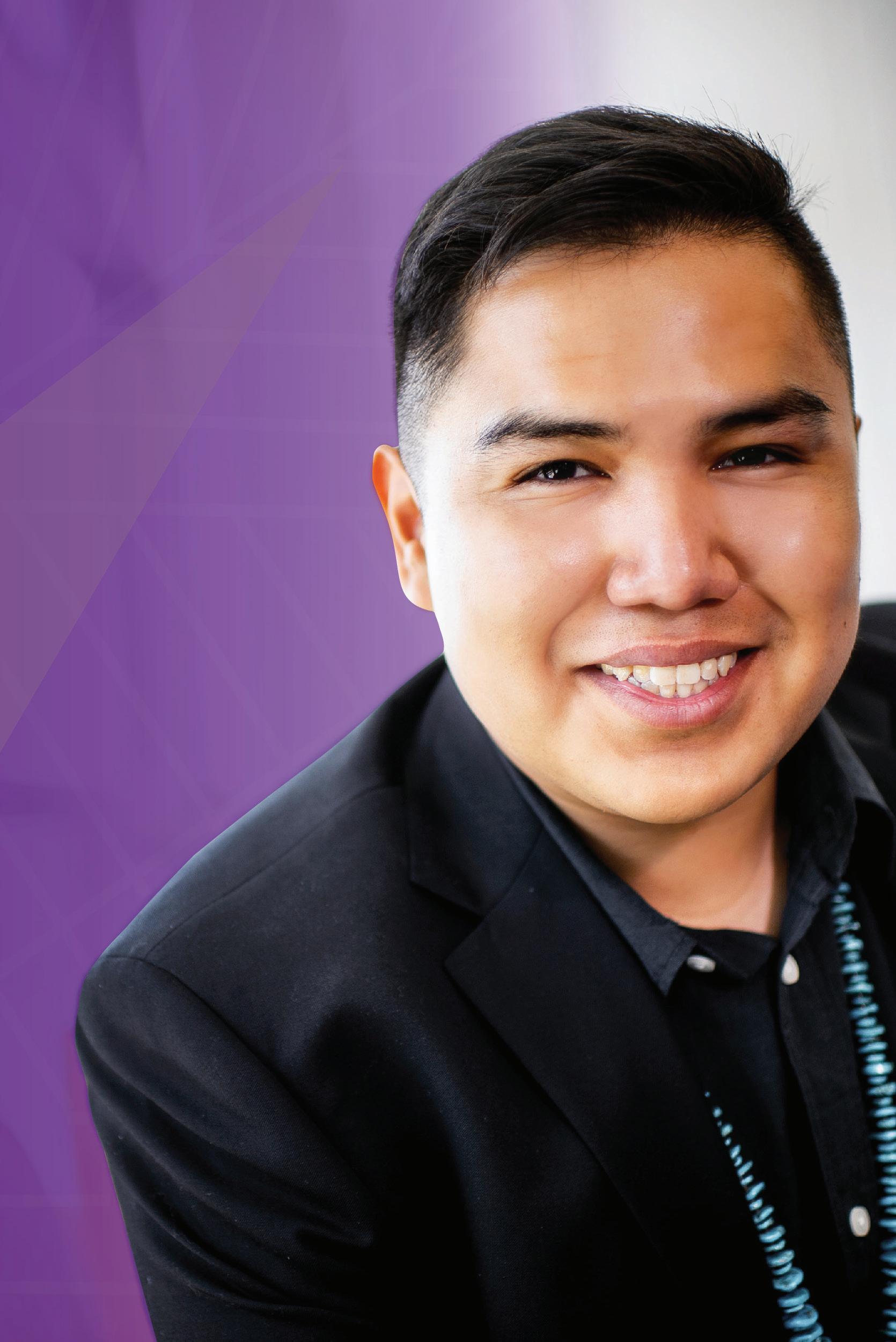
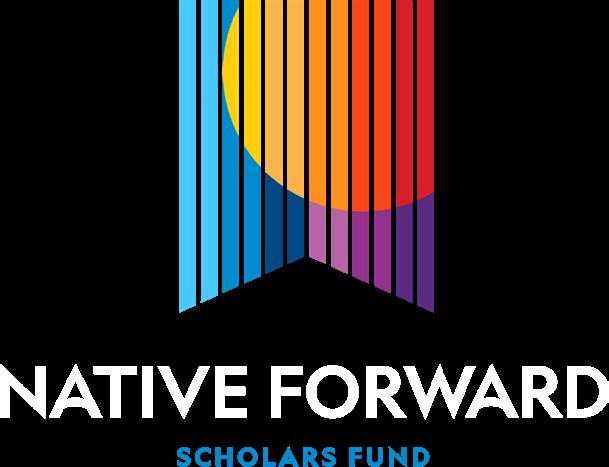
MATTHEW HOLGATE, NAVAJO NATION
50TH COMMITTEE
Angelique Albert, MBA
Chief Executive Director
Confederated Salish and Kootenai Tribes
Antonia Belindo
Alumni Engagement Manager

Kiowa, Pawnee, Choctaw, and Navajo
Alyssa Bitsie Marketing and Communications Specialist
Diné
Jessica Bullard Development Officer
Lumbee
BOARD OF DIRECTORS
Holly Cook Macarro
Chair
Red Lake Band of Ojibwe
Stacy Leeds, Alumna Vice-Chair
Cherokee
Hud Oberly, Alumnus Treasurer
Comanche, Osage & Caddo
Amber Garrison Secretary
Choctaw Nation of Oklahoma
Adriann Francis Grants Manager
Pueblo of Laguna & Mojave
Erin Griego Chief of Staff
Britney A. King, MFA Social Media & Graphic Design Specialist
Diné and Chippewa-Cree
Sara LaBarge, M.S.Ed., Alumna Director of Strategic Partnerships Menominee Nation
Aurene Martin, Alumna Member at Large
Bad River Band of Lake Superior Chippewa
Kimberly Teehee, Alumna Member at Large
Cherokee Nation
Ernie Stevens Jr.
Oneida Nation of Wisconsin Member at Large
Cecilia Gutierrez Member at Large
Lillian Sparks Robinson Rosebud Sioux Tribe Member at Large
EMERITUS BOARD
Steve Stallings
Rincon Band of Luiseño Indians
Walter Lamar Blackfeet & Wichita
SPECIAL THANKS TO THE FOLLOWING EVENT SPONSORS:

CO-HOST
Albuquerque Branch Wells Fargo
Albuquerque Community
Foundation
American Indian College Fund
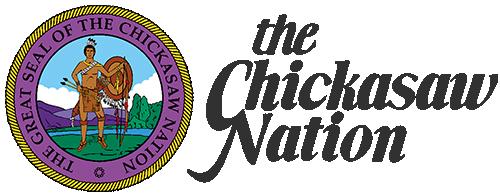
American Indian Science and Engineering Society (AISES)

Aspen Printing Company
Big Fire Law & Policy Group LLP
Corina Horn
Indigenous Education, Inc. (IEI)
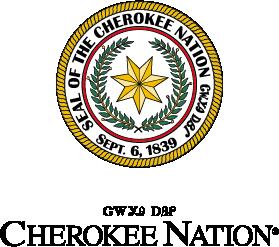
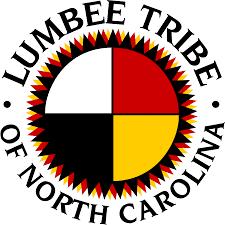
Indian Gaming Association (IGA)
Native News Online
Richard Ricks
S&K Technologies, Inc.

Tim LaFrance
U.S. Eagle Federal Credit Union
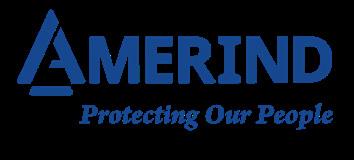
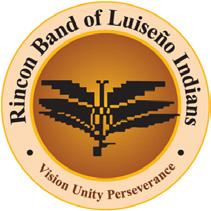
IN-KIND SPONSORS
Bethany Yellowtail
Darlene Cronin
Darrick Tsosie
Eighth Generation
Elite Island Resort
Eric Tippeconnic
Joseph Kayne
Maka Monture
NIKE N7
Origins
Regina Shebala
Sky-Eagle Collection
Tanaya Winder
Traci Rabbit
Walter Lamar
Wells Fargo

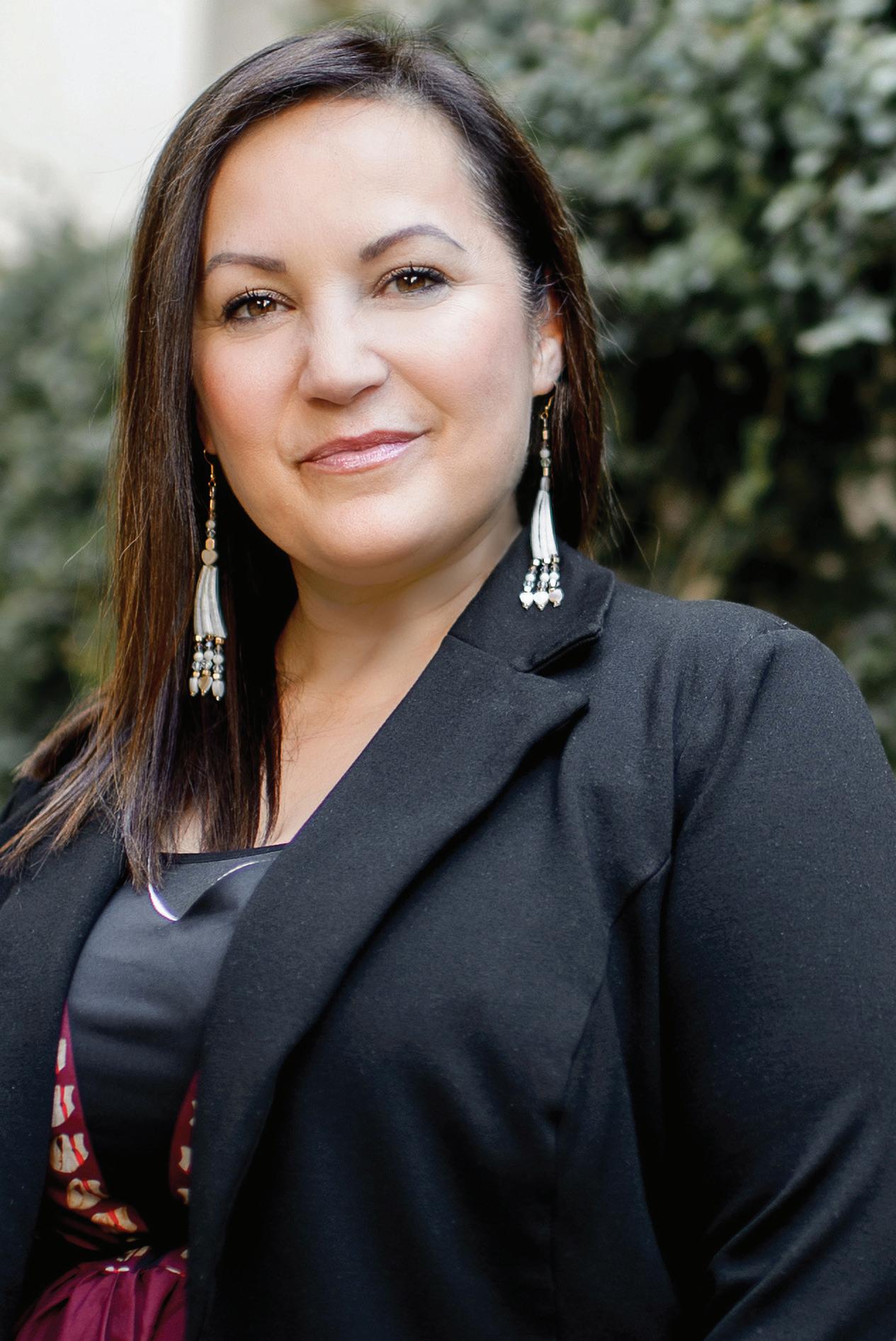
Xest Sxlxalt (Good Day)!
Welcome and thank you for joining us as we celebrate this tremendous milestone in the organization’s history. Our 50th Anniversary Gala: Honoring Our Legacy celebrates our visionary founders, Robert Bennett (Oneida) and John Rainer (Taos Pueblo) as well as all who have contributed to our story thus far.
Tonight, alumni and leaders throughout Indian Country will gather to not only celebrate, but to highlight the importance of scholarships and academic support for all Native students pursuing their undergraduate, graduate, and professional degrees across the U.S.
In the last 50 years, Native Forward Scholars Fund has empowered over 20,000 Native scholars in their pursuit of undergraduate, graduate, and professional degrees. We have awarded more than $350 million in direct scholarships since our inception in 1969. We offer more than 40 scholarship opportunities, not to mention countless programs and resources specifically designed to address the needs of Native students in postsecondary education.
Today, I am grateful and give thanks to all of the Board Members, Executive Directors, and staff over the past 50 years who have been instrumental in bringing us to where we are today. With such a positive impact on Indian Country and the nation, I invite each and everyone of you to connect and celebrate our history, our shared stories, and our future.
Lemlmtš (Thank You),
 Angelique Albert
Confederated Salish & Kootenai Tribes Chief Executive Officer
Angelique Albert
Confederated Salish & Kootenai Tribes Chief Executive Officer
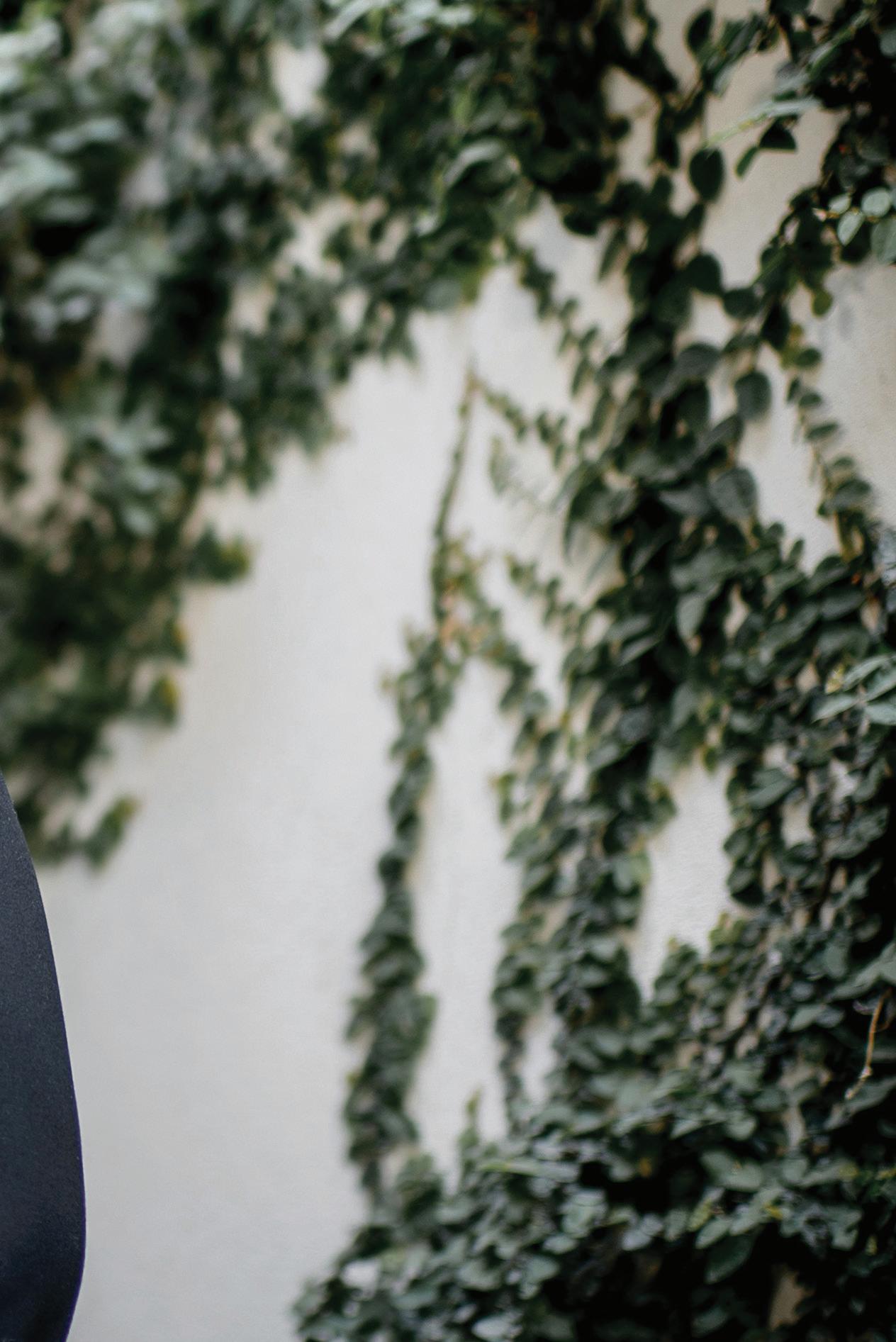
• • •


7 PM Cocktails & Connections Silent Auction Begins 7:30 PM Program Begins Welcome from CEO Angelique Albert Dinner 7:40 PM Our History Our Legacy Our Founders Video 8:25 PM Inaugural Hall of Fame Induction 9 PM Guest Speaker, Tanaya Winder 9:10 PM Silent Auction Closes 9:20 PM Live Auction 9:30 PM Final Fundraising Announcement Cocktails & Connections T-shirt Redemption Auction Item Pick-Up 10 PM Event Concludes
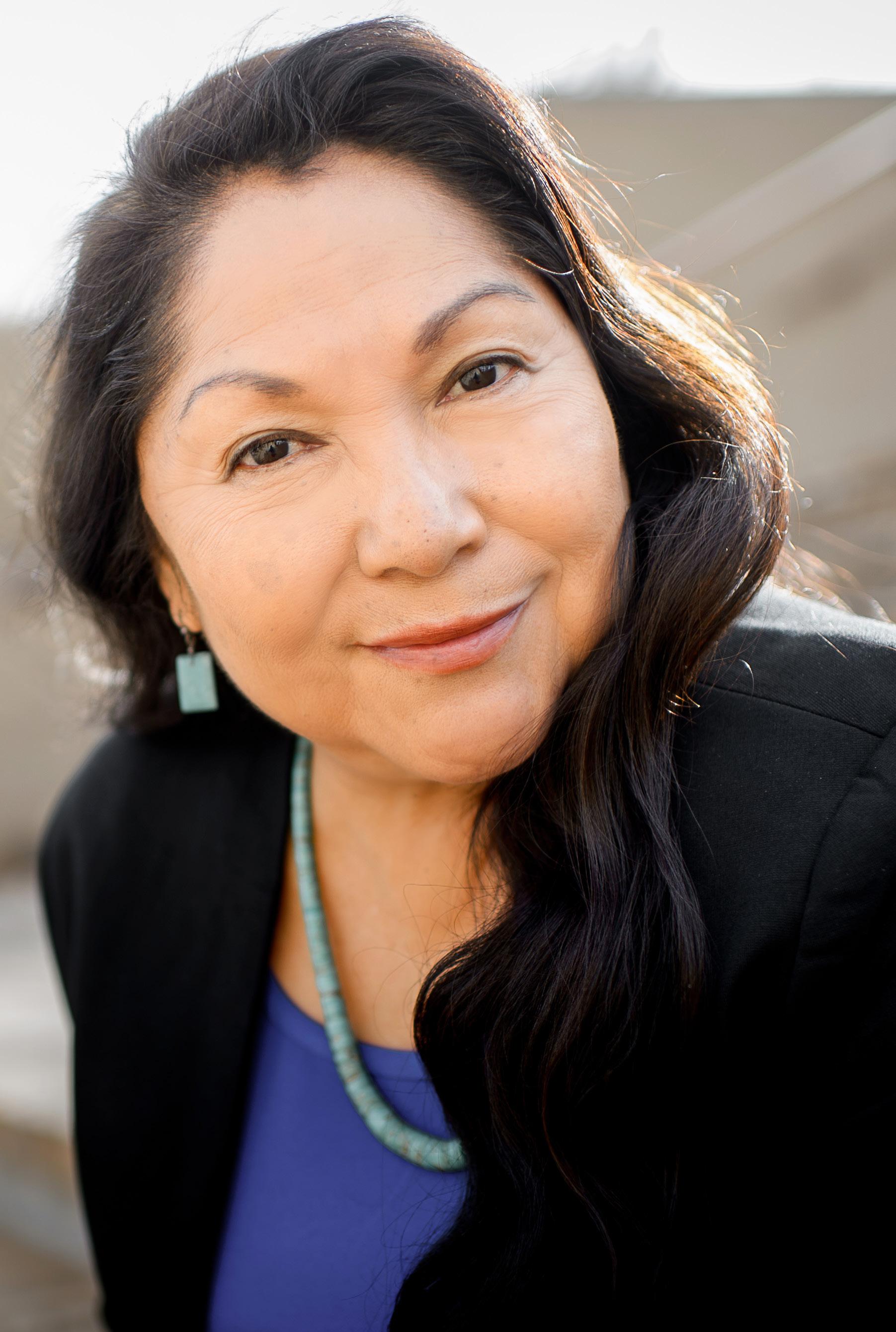
DEBORAH JOJOLA, ISLETA & JEMEZ PUEBLO


Dr. Henrietta Mann (Cheyenne-Arapaho Tribes of Oklahoma), Academic, Activist, and Native Forward
Alumna

Kimberly Teehee (Cherokee Nation), Activist, DelegateDesignate to the U.S. House of Representatives for the Cherokee Nation, and Native Forward Board Member
Honorable Deb Haaland (Laguna Pueblo)
Robert Bennett (Oneida), Native Forward Co-Founder
John Rainer (Taos Pueblo), Native Forward Co-Founder
DR. HENRIETTA MANN
Dr. Mann is the Endowed Chair in Native American Studies at Montana State University, Bozeman.
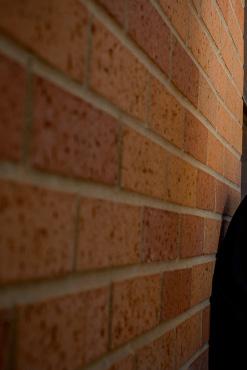
She taught at the University of Montana, Missoula for 28 years where she was a Professor of Native American Studies. She also has taught at the University of California, Berkeley; Harvard University; and Haskell Indian Nations University located in Lawrence, Kansas.
Dr. Mann has served as the Director of the Office of Indian Education Programs and Deputy to the Assistant Secretary for the Bureau of Indian Affairs. She also was the National Coordinator of the American Indian Religious Freedom Act Coalition for the Association of American Indian Affairs.
In 1991, Rolling Stone Magazine named her one of the 10 leading professors in the nation. She has been an interviewee and consultant for several television and movie productions and has lectured throughout the United States and in Mexico, Canada, Germany, Italy, and New Zealand.
– Dr.
“We must expand upon our own bodies of knowledge that reflect the needs of our respective nations or communities and begin to fill those gaps in terms of knowledge or skill areas that are needed from Tribal citizens.”
Mann
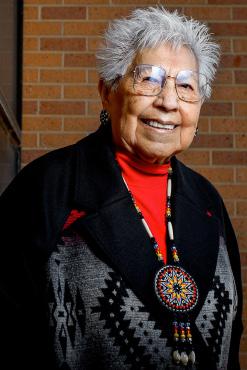

KIMBERLY TEEHEE
Teehee is director of government relations for Cherokee Nation and senior vice president of government relations for Cherokee Nation Businesses.
In 2019, Cherokee Nation Principal Chief Chuck Hoskin Jr. named Teehee as the Tribe’s first delegate to the U.S. House of Representatives. She previously served President Barack Obama as the first-ever senior policy advisor for Native American Affairs in the White House Domestic Policy Council for three years. Teehee also served as senior advisor to the U.S. House of Representatives Native American Caucus co-chair, Rep. Dale Kildee (D-MI) for nearly 12 years.
As senior advisor, she established an impressive record of accomplishments on a wide array of Native American issues. Teehee received her B.A. in Political Science from NSU and her J.D. from the University of Iowa College of Law.
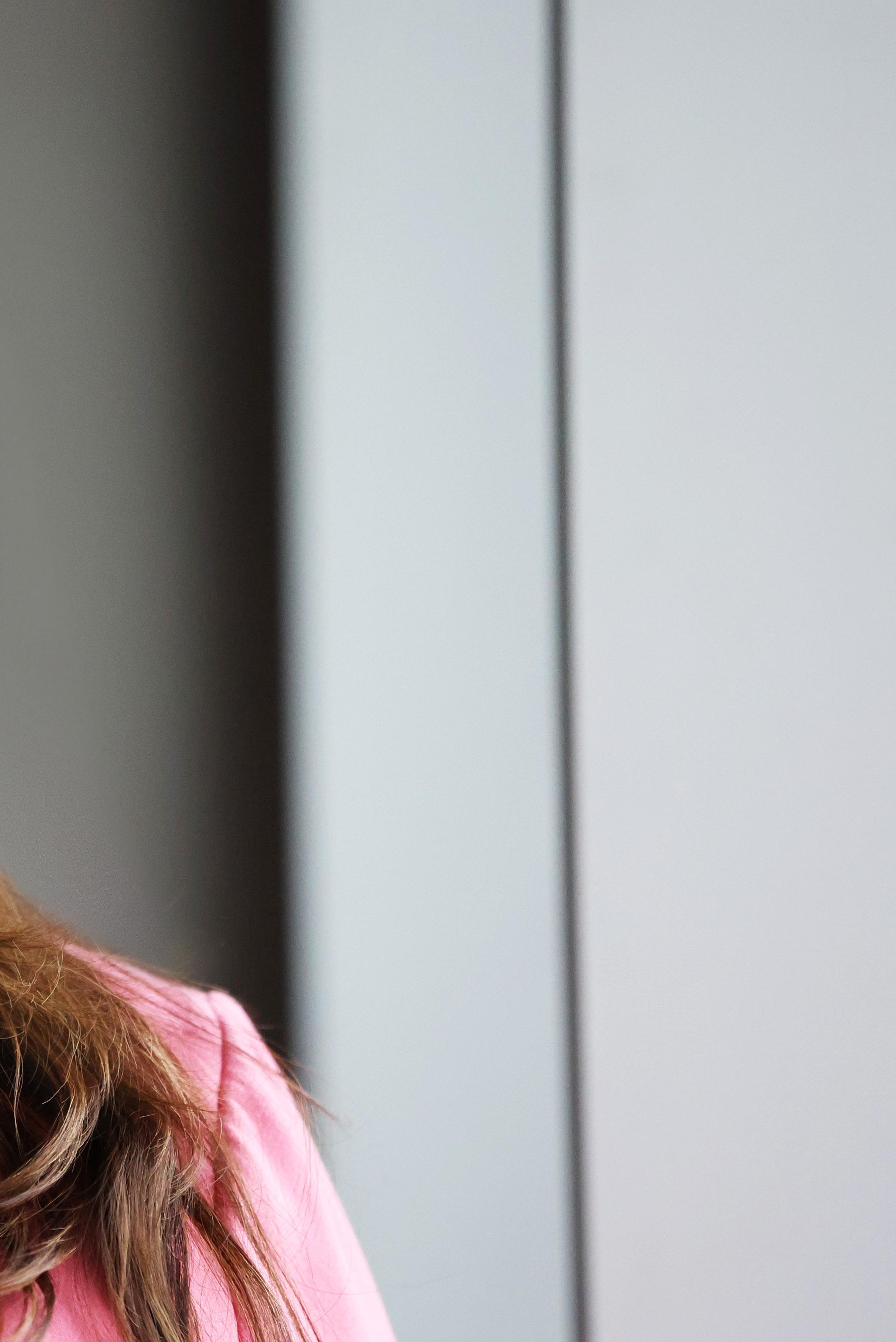
“As an advocate for a new generation of Indigenous leadership, I hope we can open even more doors for our young people to thrive. When Native students succeed, it benefits all our Tribal nations, and as Indian Country continues to grow stronger, we need more and more college graduates.”
-Kimberly Teehee
HONORABLE DEB HAALAND
Haaland is a member of the Pueblo of Laguna and a 35th generation New Mexican. Haaland was born in Winslow, Arizona. Growing up in a military family, Deb frequently moved, she attended 13 public schools before graduating from Highland High School in Albuquerque.
Haaland earned her Bachelor of Arts degree from the University of New Mexico in 1994 and her Juris Doctorate from the University of New Mexico in 2006.
Throughout her career, Haaland served as a business executive, a Delegate for the Democratic National Convention in 2008, a tribal administrator for San Felipe Pueblo from 2013 to 2015, a member of the New Mexico Democratic Party from 2015 to 2017, and was elected as a Democrat to the One Hundred Sixteenth and to the succeeding Congress between 2019 and 2021.
Throughout her career in public service, Haaland has broken many barriers, increased representation, and left the door of opportunity open for future generations.
Haaland is one of the first Native American women to serve in Congress. Her focus is environmental justice, climate change, missing and murdered Indigenous women, and family-friendly policies.
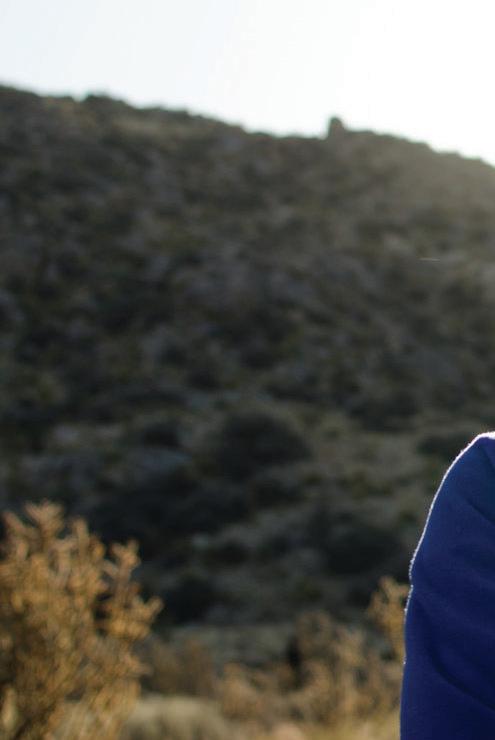
"I know I am one person, but across the country, having the support for our higher education means the world to our country, to our communities, and to the people who need to come after us. If it wasn't for this organization, I wouldn't be standing here right now. And I am very proud that I have had this opportunity."
-Deb Haaland
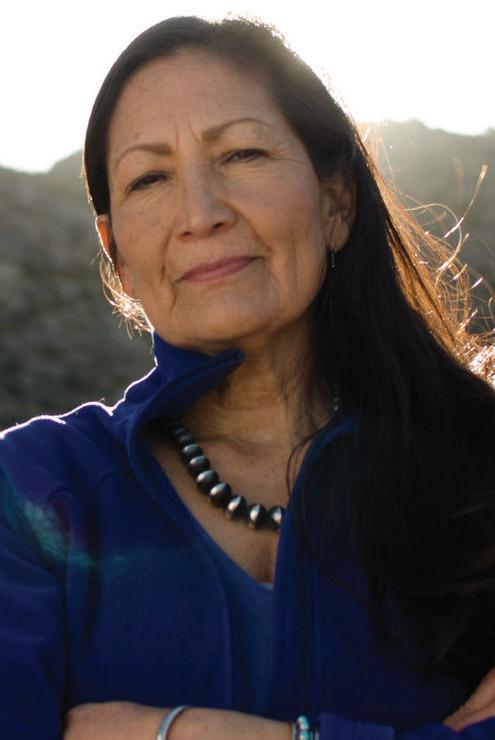 PHOTO BY MICHAEL ANAYA GORMAN
PHOTO BY MICHAEL ANAYA GORMAN
ROBERT BENNETT
One of the co-founders of what today is known as Native Forward Scholars Fund was Robert Bennett. He was born on the Oneida Indian Reservation near Green Bay, Wisconsin, in 1912.

He attended Haskell Institute in Kansas before he studied law at Southwestern University Law School in Washington D.C., where he earned his law degree in 1941.
Much of his legal work supported Native land claims. For this work, he was awarded the Indian Achievement Award in 1962 and the Outstanding American Indian Citizen Award in 1966.
His commitment and work representing American Indians caught the attention of many including President Lyndon B. Johnson. Bennett was a Marine Corps veteran of World War II.
“A lot of times things like this turned into a onetime offering. Instead, they built an organization with the capacity to grow and acquire more funding to provide more opportunities. I really think Bennett had a lot to do with that.”
– Charles Trimble (Oglala Lakota), former Native Forward board member and principal founder of the American Indian Press Association and served as executive director for the National Congress of American Indians from 1972-1978.
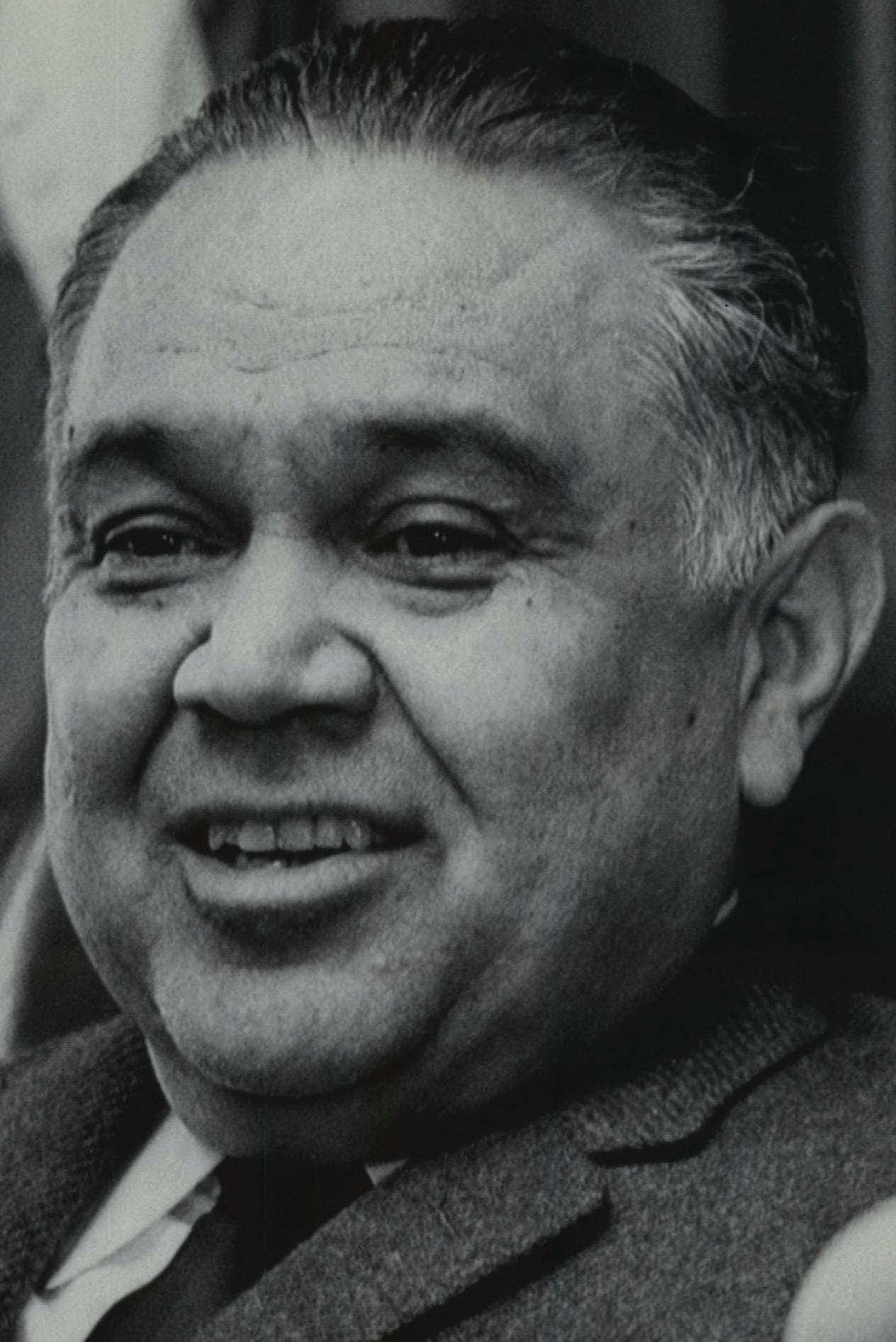
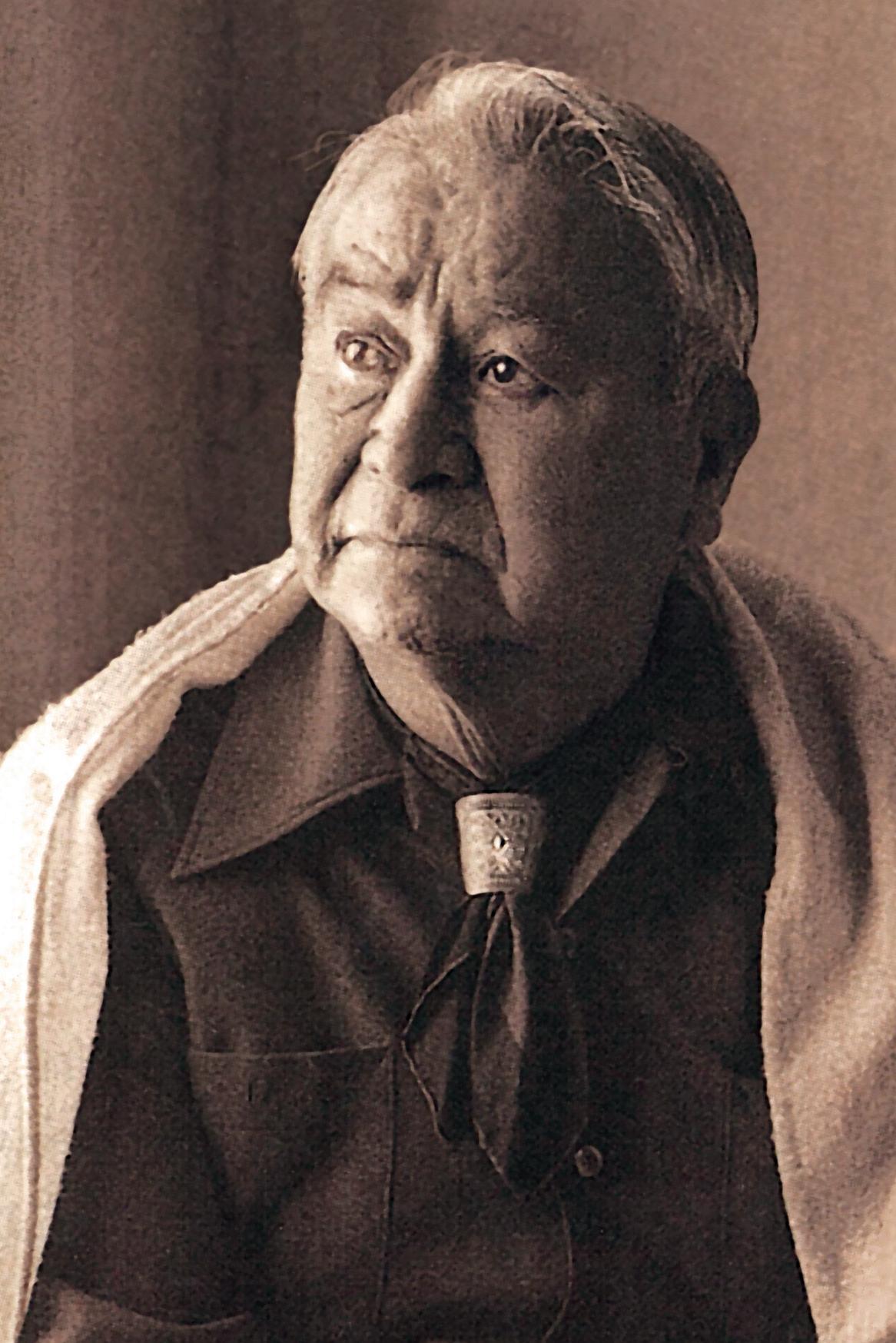
JOHN RAINER
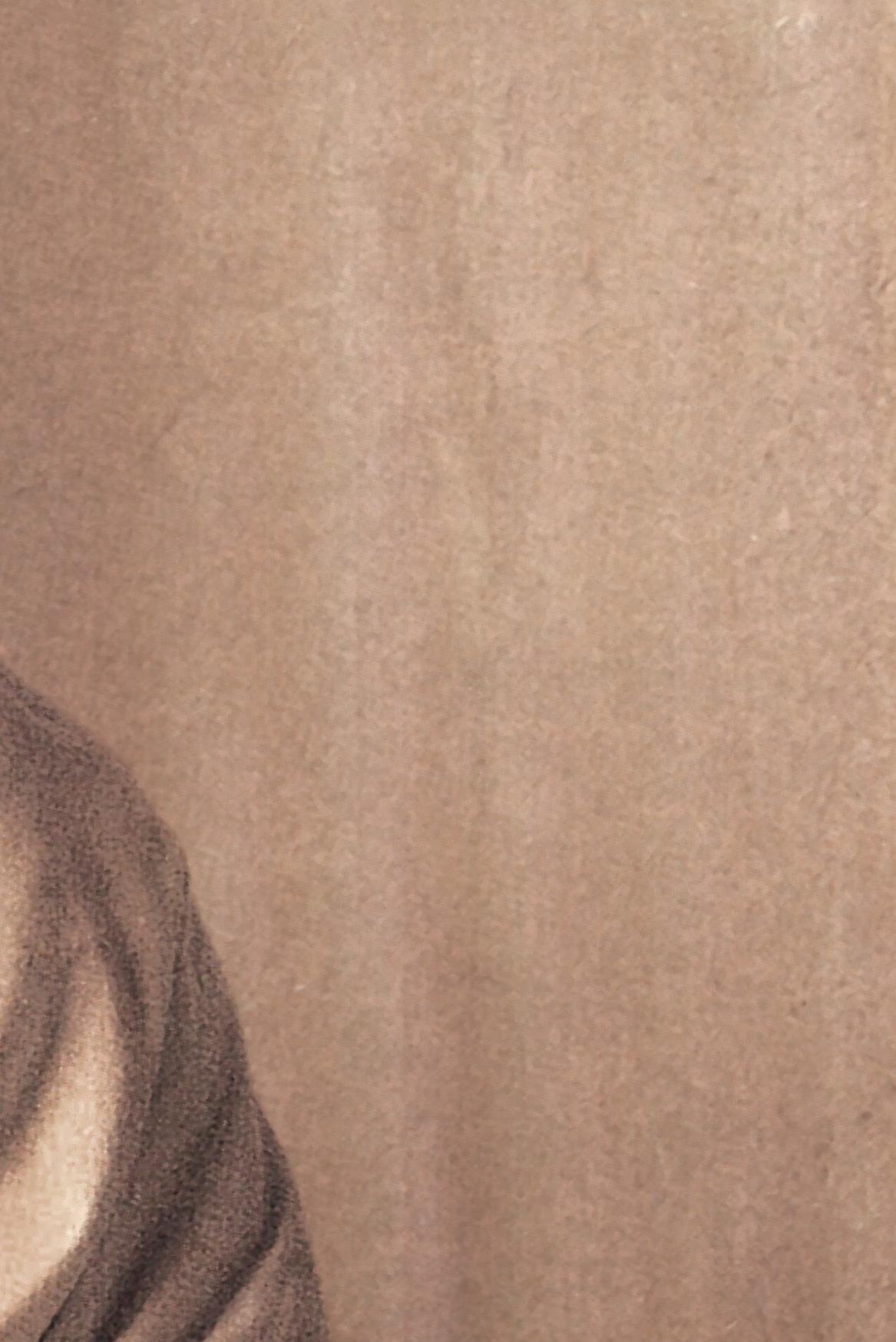
One of the co-founders of what today is known as Native Forward Scholars Fund was John Rainer. He was born on the Taos Pueblo in Northern New Mexico in 1913.
He attended the University of Redlands in California where he received his bachelor’s in education in 1938. Rainer also earned his master’s degree in educational administration from the University of Southern California.
Rainer was appointed by President Richard M. Nixon to the National Council on Indian Opportunity; was executive director and later served as vice president and treasurer for the National Congress of American Indians and was chairman of the All Indian Pueblo Council.
Rainer was part of the Washington, D.C. Taos Pueblo delegation for the return of Blue Lake.
“Without an education, you can only go so far. Whether you choose formal education, technical training, or learning a trade, education will prepare you for life."
– John Rainer
1. "Warrior" Blanket, collaboration with Dante Biss-Grayson of Sky-Eagle Collection and Eighth Generation; Value: $220
2. "Sky-Ties" Custom Print Silk Ties, extra long for ease of tying; Value: $80
3. "Sky-Scarf" Custom Print Silk Scarf, Size 43”42”; Value: $95
4. "Dua-Blass" Design — Unique with rare and hard to find lace. Haute Design, limited edition, and most likely will never be restocked, luxurious with pockets (each Item is unique and slight imperfections can add to the character, uniqueness and overall beauty).
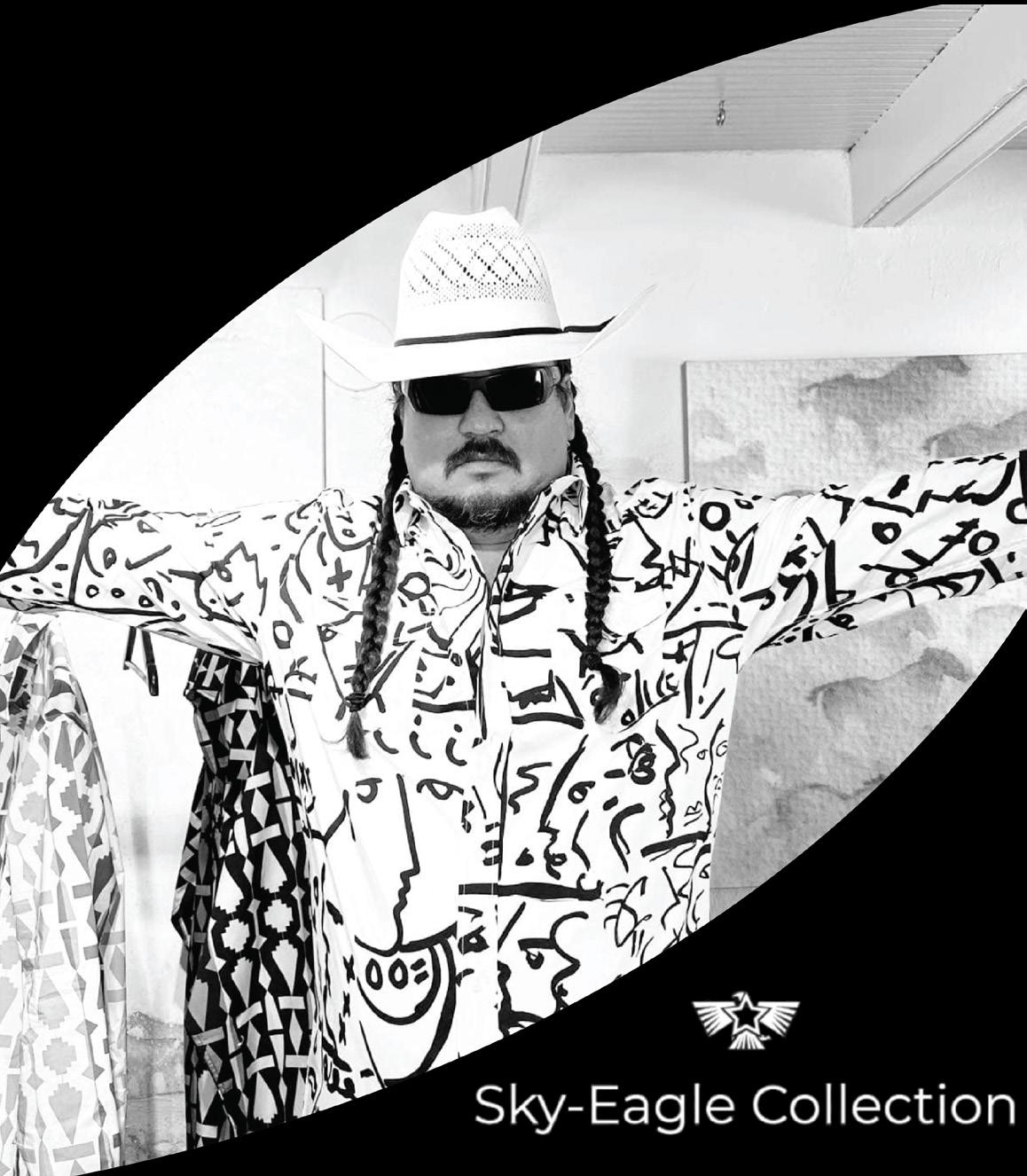
Value: $300

Material: Embroidery Flower Lace Inner layer Cavalli Silk
Length: Inner Layer 28”; Lace Overlay 41”
Waist: Expandable, Small to 2XL; 26” to 46”
LIVE AUCTION ITEMS
“Contrast” 3’ x 4’ Original Framed Black and White Photograph; Value $3,500

This beautiful piece was on display in the lobby of the Department of Agriculture.
“In 1967, my father Newton Lamar was the photographer for the Navajo Nation – he shot with a Nikon camera and upon release of the Nikkor 24mm he immediately purchased it. In March 2016 as no DAPL protesters converged on Washington, D.C., set lodges on the mall, and prepared to march against the pipeline, I visited the mall late one evening. Shooting through my Dad’s lens gives me the feeling of seeing things through his photographic eye. After setting my tripod and looking through the lens, I was sure this would be the shot he would have taken. He loved lots of contrast in his photos, the blacker the blacks, and whiter the whites, all the better. This photo represents “contrast” with the teepee set in front of the monolithic monument and also presents the contrast my Dad liked. The starburst of the lights comes from the older model of lens.”
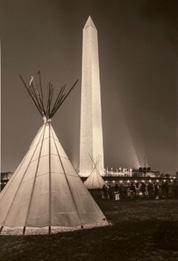

1869-1960s: Utilizing Western Education as a Weapon Against Native People & Communities Boarding School Era –Indian Boarding School Policy established by the Federal Government, utilizing education to “kill the Indian, save the man” in an attempt to assimilate Tribal people.
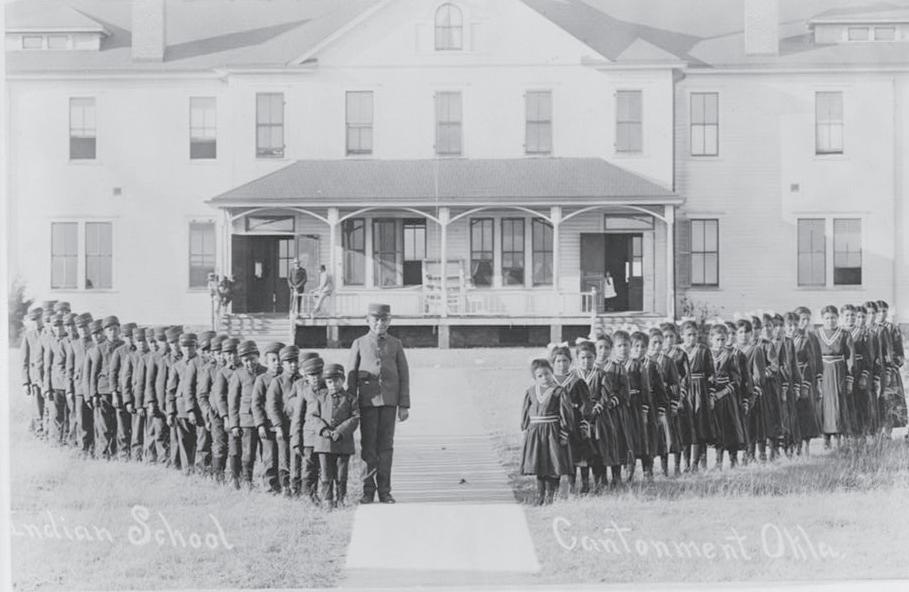
1967-1969: Establishing a Foundation

Bureau of Indian Affairs reports 13 American Indian graduate students in the entire nation.
Robert Bennett helps establish the National Indian Scholarship Program at the University of New Mexico, which would later be absorbed by Native Forward.
1969: John Rainer lays the groundwork to form American Indian Scholarship, Inc. (AIS), which would later become Native Forward and assumes the Executive Director role.
https://lccn.loc.gov/0065124; Indian School, Cantonment, Okla. [graphic]. c1909. 1 photographic print (postcard). LOT 4946 [item].
1970: Officially an Organization

The American Indian Graduate Scholarship Program Committee John Rainer presiding, holds its first meeting.
The first two recipients are awarded fall of 1970, Donald McCabe and Vincent Knight.
Robert Bennett, David Warren, and Joe Sando sign the articles of incorporation formally establishing the organization American Indian Scholarships, Inc.
1974-1975: Growing Our Roots
Initially, the organization operated out of a trailer near Lomas Blvd. and Yale Blvd. in Albuquerque, NM. The office then moved to John Rainer's property in Taos Pueblo, NM.
The first scholarship endowment Native Forward administered was established by the Blue Spruce family in honor of Dr. Beryl Blue Spruce. During this time, Native Forward awarded roughly 22 students with an average award of around $973 per student.
In 1975, U.S. Congress enacted the Indian Self-Determination and Education Assistance Act.
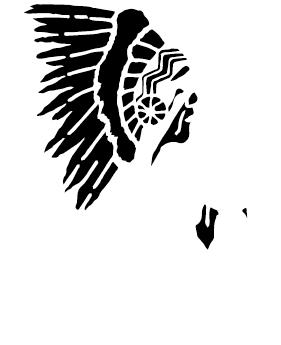
1981-1983: A Time for Advocacy

The Reagan administration reduces funding for Indian higher education from $282 million to $169 million. John Rainer executes outreach efforts resulting in significant new funding streams.
At just over a decade old, Native Forward awards 158 students with an average award of $3,700 per student.
John Rainer participates in a Senate Budget Committee field hearing and later testifies before the Senate and House Appropriations Subcommittee of Interior Affairs, urging funding for increased Indian higher education. The House approves the recommendation of a $978,000 BIA Contract.
John retires on December 31 as Executive Director.
1984-1985: Engaging Key Stakeholders
Native Forward welcomes its second Executive Director, Lorraine Edmo (Shoshone-Bannock).
During this time, the first Annual Report is produced, offices are relocated to Albuquerque, NM and the first American Indian Graduate Record newsletter is released. Later, this publication would become the American Indian Graduate magazine.
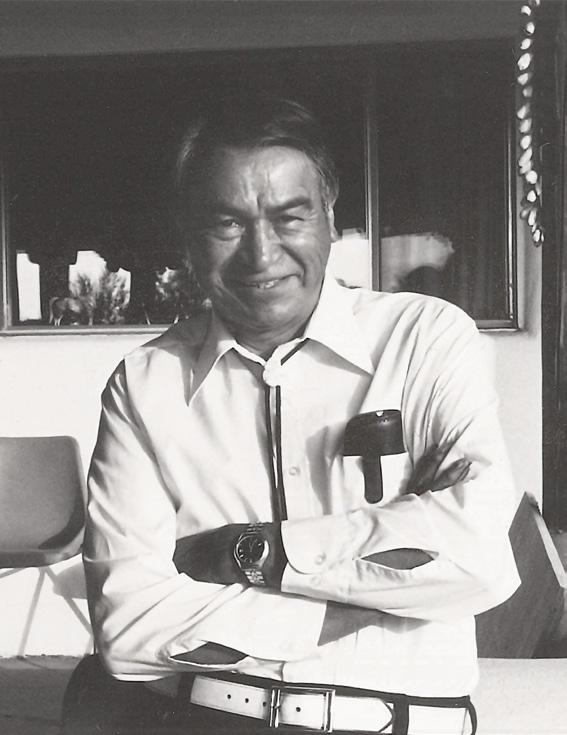
1986-1989: Services for Native Students & Creating Parnerships
The two Bureau of Indian Affairs Indian graduate programs are consolidated. Administration of the Indian Law Scholarship program is transferred from the American Indian Law Center to Native Forward.
During this time, $1.6 million in fellowships is awarded to 292 students. For the first time in the organization’s history, Native Forward awards more women (152) than men (140).

Native Forward Board of Directors redefines the organization as a multi-service, rather than a sole scholarship organization and enters cooperative efforts with other National Native groups and Tribal scholarships offices.
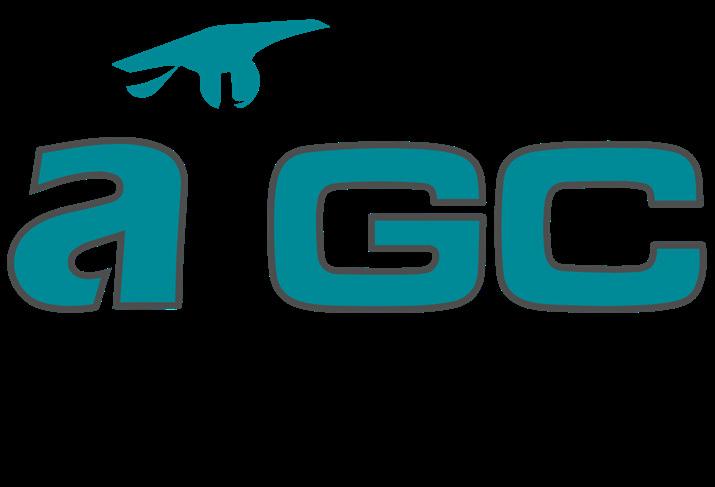
Despite increased funding, it was estimated that students had an additional $500,000 in unmet need.
In 1989, the organization's name was formally changed to American Indian Graduate Center to reflect its expansion into becoming a national center, including additional services and programming. The change also helped communicate the mission of producing graduate and professional degree recipients.
Founders John Rainer and Robert Bennett are honored at the 20th anniversary celebration.
1990-1991: Establishing Legacy
Native Forward receives its first legacy gift. At her passing, Elizabeth Furber bequests a quarter of her estate for the Elizabeth Furber Scholarship Trust.
Native Forward received 763 funding applications and awarded 427 Native students.
1992: Native Forward welcomes new Executive Director, Oran LaPointe (Rosebud Sioux).
1994: Native Forward welcomes new Executive Director, Reginald Rodriguez (Laguna Pueblo).
1995-1996: Understanding Tribal Higher Education & Community Needs
Native Forward surveyed all federally recognized Tribes to identify future employment needs. The top 10 professional needs were (in order): business managers, lawyers, accountants, natural resources managers, doctors, teachers, counselors, financial analysts, engineers, and computer technicians. Additional survey information revealed that an estimated 89% of Tribal members earned $20,000 or less and that 3% had a college degree.

1997: Native Forward welcomes new Executive Director, Hilton G. Queton (KiowaSeminole). 2000: Native Forward welcomes new Executive Director, Norbert S. Hill, Jr. (Oneida).
2001: Buildling the Legacy

On September 22, Founder John Rainer passes on from this world.
2001: Native Forward was selected to administer the Gates Millennium Scholar (GMS) Program (a $1.2 billion initiative aimed at reducing financial barriers, providing opportunities and promoting academic excellence) for American Indian/Alaska Natives, doubling its staff and office space.
American Indian Graduate Center Scholars (AIGCS) affiliate is formed to manage the program, expanding service to undergraduates.
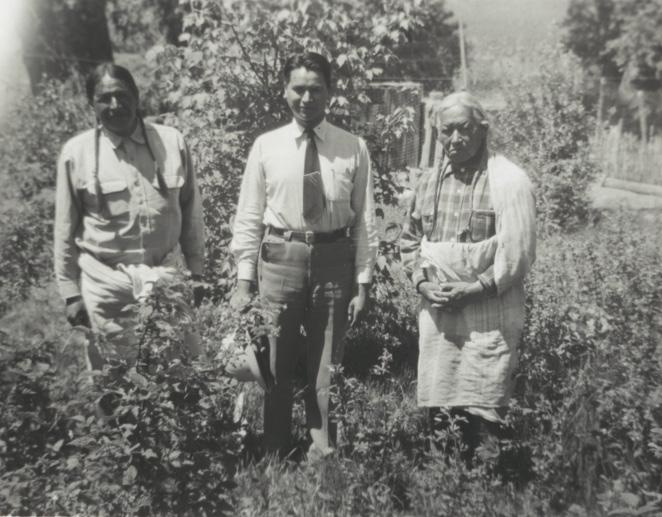
The Council of 100 inaugural meeting is held in September. The council is composed of distinguished leaders, scholars, and traditional individuals, who will serve as ambassadors for Native Forward Scholars Fund to foster Native student leadership, growth, and development.
Publication on The American Indian Graduate magazine officially begins.
Father and Son John C. Rainer, and Uncle Manuel Mondragon, Taos Pueblo, New Mexico, MRL 10: G.E.E. Lindquist Papers, 51, 866, The Burke Library Archives (Columbia University Libraries) at Union Theological Seminary, New York. Can be viewed at http://lindquist.cul.columbia. edu:443/catalog/burke_lindq_051_0866. Web accessed
13 Feb 2023.
2002: On July 11, Founder Robert Bennett passes on from this world. The first John Rainer Memorial Fellowships are awarded.

2004-2005: LongTerm Sustainability
Native Forward receives the largest number of endowments in its history, ensuring the sustainability of the many scholarship programs. In addition, the organization establishes partnership with its first corporation to administer a scholarship program setting the model for future corporate partnerships.

2007: Native Forward welcomes new Executive Director, Philip S. Deloria (Standing Rock Sioux Tribe).
Native Forward secures largest ever corporate partnership agreement that continues today. The commitment ($3 million gift) has led to an $8.6 million and growing gift.
2016: Native Forward welcomes new Executive Director, Angelique Albert (Confederated Salish & Kootenai).
2017: Native Forward launches new strategic direction to implement business strategies to strengthen the infrastructure, implementing data collection to properly tell the organization story and increased holistic services to students.

This effort resulted in increased student programming and diversified revenue streams.
2018: Native Forward finalized its first economic impact study highlighting the impact of Native Forward scholars on U.S. society.
Native Forward recipients for 2016-2017 year who are employed in the U.S. workforce amounted to $349.4 million in added income to the U.S. economy which is equivalent to supporting 5,844 jobs.
The average annual return for AIGC scholarship recipients is 16.3%.
Additionally, the average annual return on investment for taxpayers was over 27.2%.
2019: Native Forward launches a new logo reflecting a new vision: successfully empowering our students alongside their support systems.
During this academic year, Native Forward funded 1,340 students with an average award amount of $10,408. The unmet need hovered around $22,500.
Initial 50th Anniversary Gala is postponed by Native Forward Board of Directors, Executive Leadership and Committee due to the COVID-19 pandemic. It was later rescheduled for 2023.

2020: Native Forward received a historic $20 million unrestricted gift. The organization has since mobilized implementing a new strategic direction for continued sustainable growth and increased unrestricted funding streams of revenue. 2021: Native Forward updates strategy moving into a growth stage for the organization with the intent of increasing the muchneeded scholarship dollars to Native higher education students.
The unmet need of all applicants totaled over $23 million.
2022: Identity & Ownership
Previously American Indian Graduate Center, Native Forward Scholars Fund launches new brand to reflect the identity of the students that the organization serves, as well as the impact its alumni are making across the nation.
For the first time, Native Forward purchased its own office building and relocated to northeast Albuquerque, NM. The current building is 10,500-square-feet and can accommodate the growth of staff.
2023:

Native Forward celebrates its 50th Anniversary Gala: Honoring Our Legacy at the Smithsonian’s National Museum of the American Indian in Washington, D.C. on February 22.
This milestone event inducts its Inaugural Hall of Fame Class including Secretary Deb Haaland, Dr. Henrietta Mann, Kimberly Teehee, and Founders John Rainer and Robert Bennett.
This year, Native Forward grew from 20 to 34 employees with a five-year strategic plan to grow to 50 employees by the end of 2026.
HONORING OUR EXECUTIVE DIRECTORS
John Rainer (Taos Pueblo), 1969–1982
Lorraine Edmo (Shoshone-Bannock), 1984–1992
Oran LaPointe (Rosebud Sioux), 1992–1994
Reginald Rodriguez (Laguna Pueblo), 1994–1996
Hilton G. Queton (Kiowa-Seminole), 1997–1999
Norbert S. Hill, Jr. (Oneida), 2000–2006
Philip S. Deloria (Standing Rock Sioux Tribe), 2007–2013

Angelique Albert, (Confederated Salish & Kootenai), 2016–Present
HONORING OUR FOUNDING BOARD MEMBERS
Ada Deer (Menominee)
Charles Trimble (Oglala Sioux)
David Warren (Santa Clara Pueblo/Chippewa)
Joe Sando (Jemez Pueblo)
Leah Manning (Shoshone- Paiute)
Lucy Covington (Colville)
Overton James (Chickasaw)
HONORING OUR BOARD PRESIDENT HISTORY
Ada Pecos (Jemez Pueblo)
David Mahooty (Zuni Pueblo)
Elizabeth Rodke Washburn (Chickasaw)
Grayson B. Noley (Choctaw)
Holly Cook Macarro (Red Lake Band of Ojibwe)
James M. Cox (Comanche)
Jeanne Whiteing (Blackfeet/Cahuilla)
Joseph Martin (Navajo)
Joy Sundberg (Yurok)
Louis Baca (Santa Clara Pueblo)
Lucy Covington (Colville)
Maxine Lewis-Raymond (Yurok)
Michael E. Bird (Santa Domingo Pueblo/Ohkay Owingeh Pueblo)
Osley Saunooke (Cherokee)
Rhonda Whiting (Confederated Salish & Kootenai)
Rick St. Germaine (Lac Courte Oreilles/Ojibwa)
Rose Graham (Navajo)
HONORING OUR BOARD MEMBERS, 1971–PRESENT
Alice Bathke (Navajo)
Amber Garrison (Choctaw)
Aurene M. Martin (Bad River Band of Lake Superior Chippewa)
Beverly Singer (Tewa/ Diné)
Bill Anoatubby (Chickasaw)
Cecilia Gutierrez
Chris McNeil (Alaska Native)
Dana Arviso (Navajo)
Danna K. Jackson Esq. (Confederated Tribes of Salish and Kootenai)
Darlena L. Watt (Colville)
David Lester (Creek)
David Powless (Oneida)
Dee Ann DeRoin (Ioway Tribe of Kansas)
Elizabeth Rodke Washburn (Chickasaw)
Ernest Stevens (Oneida Nation of Wisconsin)
Ernie Stevens, Jr. (Oneida Nation of Wisconsin)
Floyd Correa (Laguna Pueblo)
Franklin “Hud” Lois Oberly Jr. (Comanche/Osage/ Caddo)
Georgianna Tiger (Blackfeet)
Grayson B. Noley (Choctaw)
James G. Sappier (Penobscot)
Joann Sebastian Morris (Cayuga/ Sault Ste. Marie Ojibwe)
Joel Frank (Seminole Tribe of Florida)
John Stevens
(Passamaquoddy)

Kathryn W. Shanley Nakota (Assiniboine)
Kimberly Kay Teehee (Cherokee Nation)
LaDonna Harris (Comanche)
Lillian Sparks Robinson (Rosebud Sioux)
Lionel Bordeaux (Rosebud Sioux)
Lorraine Edmo (ShoshoneBannock)
Lucille A. Echohawk (Pawnee)
Marlene Naranjo (Santa Clara/ Navajo/Potawatomie)
Martha Yallup (Yakima)
Martin Seneca (Seneca)
Marvin Franklin (Iowa Tribe)
Melanie P. Fritzsche (Laguna Pueblo)
Overton James (Chickasaw)
Peterson Zah (Navajo)
Rhonda Lankford (Confederated Tribes of Salish and Kootenai)
Richard Williams (Oglala
Lakota/ Northern Cheyenne)
Robert Stearns (Aleut)
Rose Graham (Navajo)
Rose Robinson (Hopi)
Shenan R. Atcitty (Diné)
Stacy L. Leeds (Cherokee)
Steve Stallings (Rincon)
Walter Lamar (Blackfeet Nation of Montana)
William A. Gollnick (Oneida)
HONORING OUR STAFF
Angelique Albert, MBA
Confederated Salish & Kootenai Tribes
Chief Executive Officer
Jill Geltmaker
Chief Operating Officer
Erin Griego Chief of Staff
Christa Moya, MCRP, Alumna
Navajo Nation Director of Scholarship Operations
Michael Bates, M.Ed., Alumnus
Cherokee Scholarship Operations Manager
Marveline Vallo Gabbard Acoma Pueblo
Scholarship Operations Manager
Alshana Jake
Navajo Nation Scholarship Operations Assistant
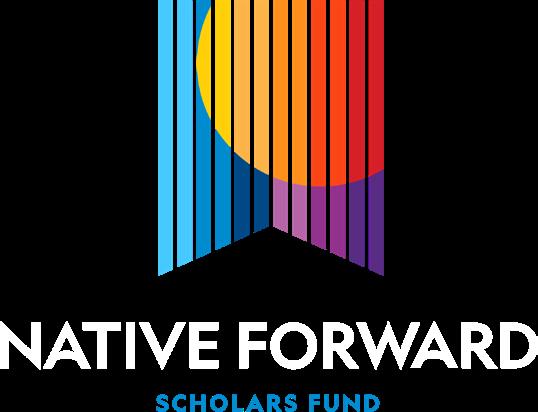
JT Schreier Scholarship Operations Assistant
Arlin Yazzie
Navajo Nation
Mentoring Program Manager
Nakina Mills, MA
Oglala Sioux Tribe
Ambassador Program Manager

Dr. Yazmene Thomas Director of Student
Programming & Research
Daryan Singer, MPS, Alumna
Navajo Nation
Alumna and Student Programming Manager
Sara LaBarge, M.S.Ed., Alumna
Menominee Nation Director of Strategic Partnerships
Brandon Barela Navajo Nation Major Gifts Officer
Antonia Belindo Kiowa, Pawnee, Choctaw, and Navajo Alumni Engagment Manager
Jessica Bullard Lumbee Development Officer
Parker Duff, MA Choctaw Nation of Oklahoma Development Assoicate
Adriann Francis Pueblo of Laguna & Mojave Grants Manager
Alyssa Bitsie Diné
Marketing & Communications Specialist

Britney A. King, MFA Diné and Chippewa-Cree Social Media & Graphic Design Specialist
Felicia Garcia
Acoma Pueblo
Administrative Services Manager
Elisa Gonzales-Phillips Controller
Taylor Clements-Hammond Accounting Specialist
Denise Olivarez Tarahumara Accounting Assistant
Gabriel Diamante Data Analyst
When investing through Native Forward, you invest in a new generation of scholars for Indian Country. Our students’ continuing efforts depend on your continued support. Students of Native Forward graduate at nearly twice the rate for American Indians and Alaska Natives outside our scholarship programs, 69% versus 41%, respectively.
Access to financial support continues to be the main barrier for Native students. The average unmet need for a Native Forward scholar is over $26,000 per year. Annually, we are only able to fund 18% of students who apply for Native Forward funding due to a lack of resources.
Support Native scholars on their journey through higher education by donating. To learn more about Planned Giving, please email Donations@NativeForward.org.
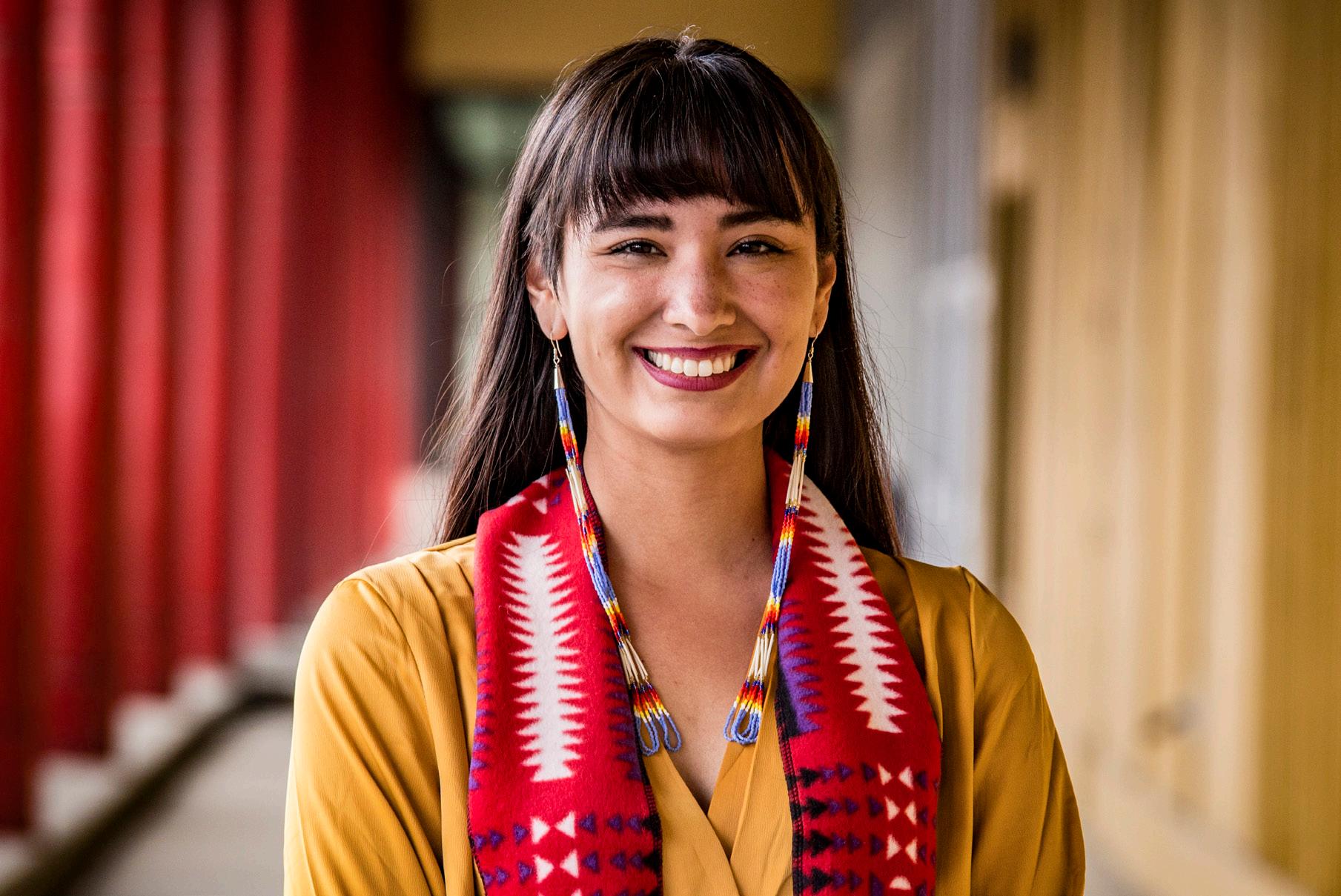
SCAN FOR MORE INFORMATION ON WAYS TO GIVE OR VISIT
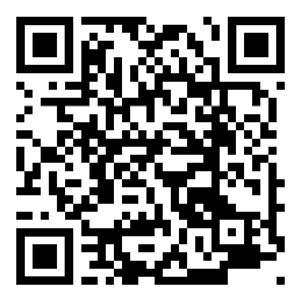
NATIVEFORWARD.ORG
TEXT "NATIVEFORWARD" TO 44-321 TO DONATE TODAY
MAKA MONTURE, TLINGIT & MOHAWK












 Angelique Albert
Confederated Salish & Kootenai Tribes Chief Executive Officer
Angelique Albert
Confederated Salish & Kootenai Tribes Chief Executive Officer













 PHOTO BY MICHAEL ANAYA GORMAN
PHOTO BY MICHAEL ANAYA GORMAN
























